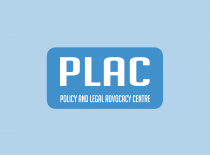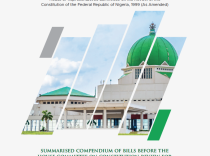The Petroleum Industry and Governance Bill 2016 has passed second reading in Senate. The Bill seeks to establish a framework for creating commercially oriented and profit driven petroleum entities. It also aims to add value to the petroleum industry by ensuring its compliance with international standards, transparency and accountability in the administration of petroleum resources in Nigeria.
Leading debate on the bill, Sen. Tayo Alasoadura (APC:Ondo) noted that the bill would transform the Nigerian oil and gas landscape by providing for an efficient, effective and institutional framework in the Industry with a clear separation between policy, regulatory and commercial institutions. To this end, he mentioned that the bill provided for the unbundling of the existing Nigerian National Petroleum Corporation (NNPC) into two separate commercial entities. That is, the National Petroleum Company (NPC) and the National Assets Management Company (AMC).
According to Sen. Alasoadura, while the NPC would function as a fully commercial entity across the value chain, the AMC would ensure the prudent management of the Federation’s oil and gas investments in assets that the Government is relieved of upfront funding.
Justifying the need for unbundling NNPC, Sen. Alasoadura argued that NNPC’s consistent poor performance had raised concerns bothering on its output in addition to other capacity and transparency issues. He also added that the restructuring of the NNPC would reduce the risk of putting all Federation assets under one entity. Other advantages enumerated by the lawmaker included that it was important to create a financially sustainable entity with the ability to source independent (non-budgetary) funding for joint venture operations, which had suffered significantly from inadequate funding in the past. He also mentioned that the two separate commercial entities was likely to increase government revenue in the Federation account provided distinct and disciplined collection processes were followed. He also hoped that itwould increase their focus on strategic interests and enhance better-cost management among others.
Furthermore, Sen. Alasoadura said the bill addressed the issue of clarity of roles, self-regulation and overlaps. For example, he mentioned that the Minister of Petroleum Resources would exercise general supervision and coordinate the affairs of the Petroleum Industry. Some of the Minister’s duties under the Bill according to the lawmaker would include the provision of full diplomatic cover for all petroleum related matters on behalf of the country rather than what is currently obtainable. Presently, the Minister of Petroleum Resources indirectly supervises the Department of Petroleum Resources (DPR) and is the Chairman of the NNPC.
The Bill has been referred to the Committee on Petroleum Upstream, Downstream and Gas for further legislative input. It is noteworthy that the Bill is the first of a series of planned bills that attempts to reform and reposition the Nigerian oil industry as more competitive, effective, and deliver sustainable growth.





